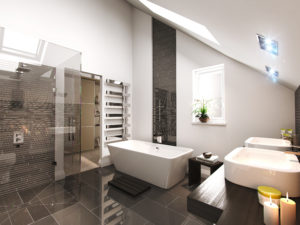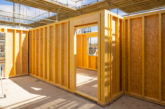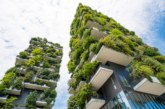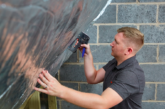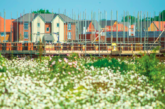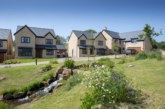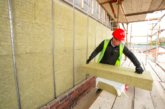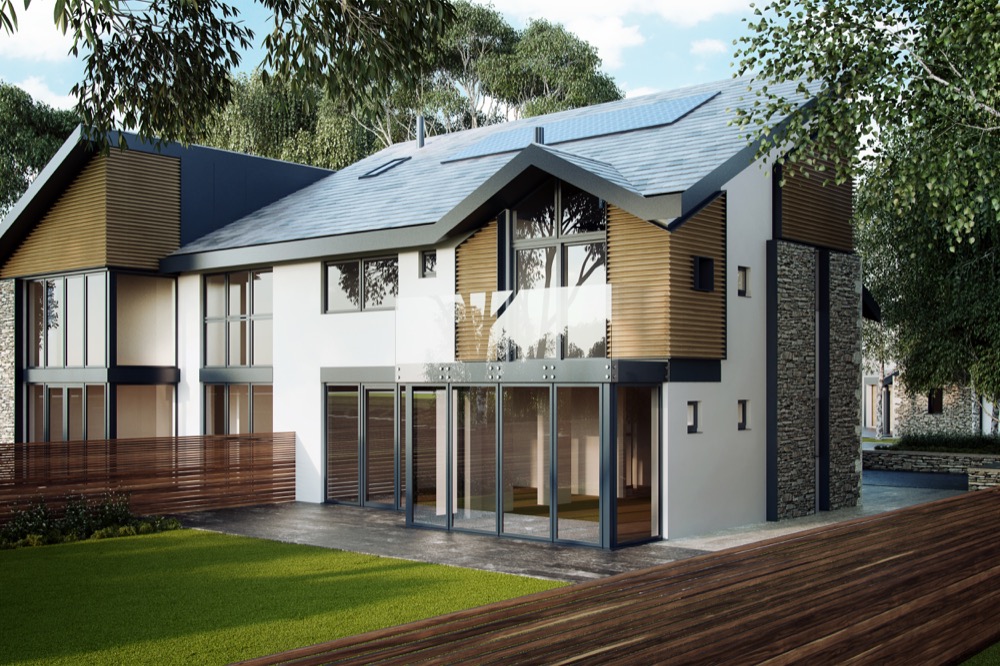
With environmental considerations a key issue for home buyers and developers alike, PHPD spoke with housebuilder egg Homes to discover how they incorporated sustainability into their inaugural development in Cumbria.
Set on generous plots overlooking the rolling Cumbrian countryside, Viver Green is a collection of 19 elegant residences of seven differing designs. Conceived to marry contemporary design with the latest energy-efficient technologies the development, by egg Homes, is already proving popular. Phase 1 was fully reserved within a week. Sales for Phase 2 have recently been launched.
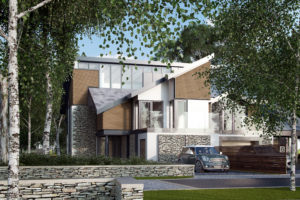 Co-founders of egg Homes, Chris Nelson, Ashley Reece and Matthew Eves, are passionate about creating sustainable homes. Ashley Reece, Partner and Director of Construction, notes: “Quality and sustainability run hand in hand in my opinion, and when building houses for the future are prerequisites. The clients who have bought to date have found it easy to understand the difference in quality compared to other developments they have viewed and have also been very well educated in construction techniques. Construction is no longer a dark art for the masses and we have to expect our clients to demand quality throughout the build and not just in the finish.”
Co-founders of egg Homes, Chris Nelson, Ashley Reece and Matthew Eves, are passionate about creating sustainable homes. Ashley Reece, Partner and Director of Construction, notes: “Quality and sustainability run hand in hand in my opinion, and when building houses for the future are prerequisites. The clients who have bought to date have found it easy to understand the difference in quality compared to other developments they have viewed and have also been very well educated in construction techniques. Construction is no longer a dark art for the masses and we have to expect our clients to demand quality throughout the build and not just in the finish.”
Building framework
Viver Green utilises Amvic Insulated Concrete Forms (ICF) for the property shells, consisting of high-density polystyrene panels with a solid concrete core. This strong insulating concrete framework also provides thermal and sound insulation, fire safety, thermal mass and durability for the property’s lifetime.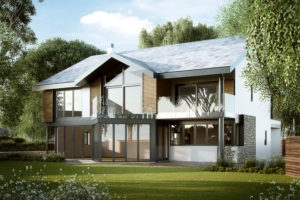
Ashley Reece notes, “ICF, create a structural air tight box by default. This minimises the scrutiny during the process and guarantees the quality, producing a far superior structure, minimising additional structural steel components yet accommodating solid upper floor structures. We have selected techniques that have minimal junctures with other products, thus minimising joint details and air leakage. The overall assembly of products will be strong, long lasting, air tight and also soundproof.”
Sustainable heating
egg Homes has also forged a partnership with Mitsubishi Electric to provide renewable Ecodan air source heat pumps for each home. “Egg Homes are using the new 4kW Ecodan QUHZ which is specifically designed to cope with the lower heat loads of new-built homes, whilst still delivering all the hot water the household needs”, explains Peter McNaughton on behalf of Mitsubishi Electric. “Not only will this deliver hot water on demand, it will match the heating requirement in the most energy efficient way possible”.Other features are triple-glazed aluminium windows and doors, underfloor heating on ground and upper floors, solar panels and intelligent controls.
Recycled content
Throughout the build process, the team has reused and recycled resources including concrete, aggregates, metals and timbers. The site was previously used for intensive egg production and required the demolition of 13 large industrial buildings and removal of concrete hard-standing throughout the site. “The site remediation created a stockpile of concrete which we have crushed on site to generate circa 10,000 tonnes of aggregate for re-use on site. Steel and plastics have been recycled and some timbers reused to create fitted furniture and details,” notes Reece.
The company has also used locally-sourced materials and tradesmen to ensure traditional skills and techniques are supported. Ashley Reece explains that one such supplier is Burlington slate, “steeped in local history and custodians of traditional crafts and techniques. We use a small local carpentry company to manufacture bespoke handmade kitchens and staircases,” he continues.
Thanks to the range of sustainable features the hamlet of properties will have SAP ratings of between 92% and 98%.
The egg Homes team is also passionate about reinvesting in the local community. As such they have already engaged in a number of socially responsible contributions which means the surrounding residents are unanimously in support of the project. Ashley Reece notes: “The community insisted that this planning permission was granted. The community trusted us and we won’t let them down. We have from the outset communicated and engaged, creating a clear understanding and route for communication. This allows us to react immediately to any concerns.”
Co-founders Chris Nelson, Ashley Reece and Matthew Eves are working directly with local governments to extend and re-open a trail way that currently culminates at the Viver Green boundary and in addition are creating a community orchard within the site that will be managed and used by local charity Growing Well. egg Homes has also employed a local apprentice and created a competition for school children to choose the name of the development.
Beyond Viver Green, egg Homes is currently in talks with several land owners in nearby areas to secure future sites for development.

